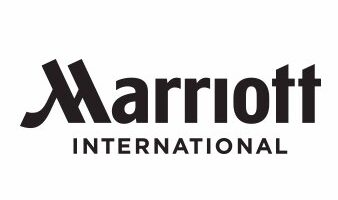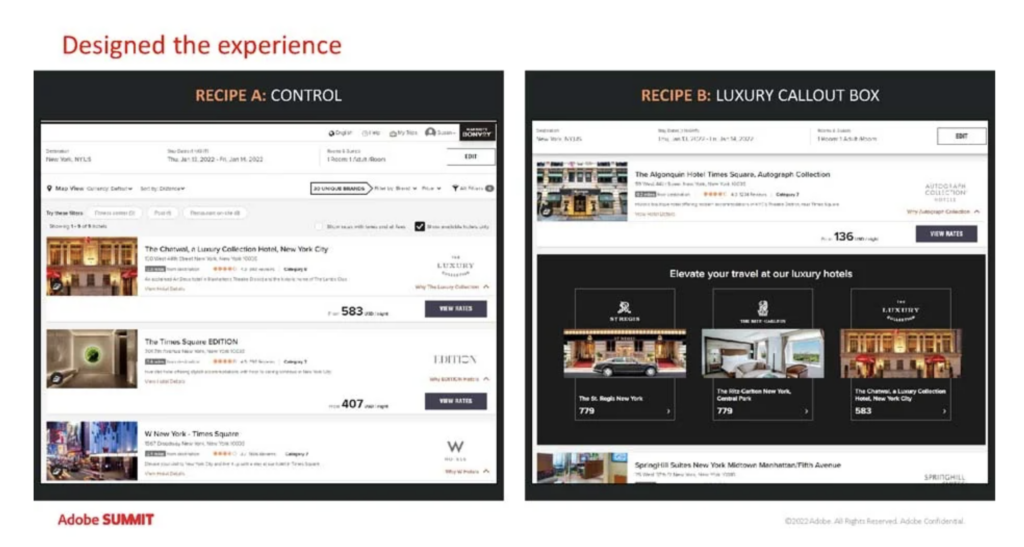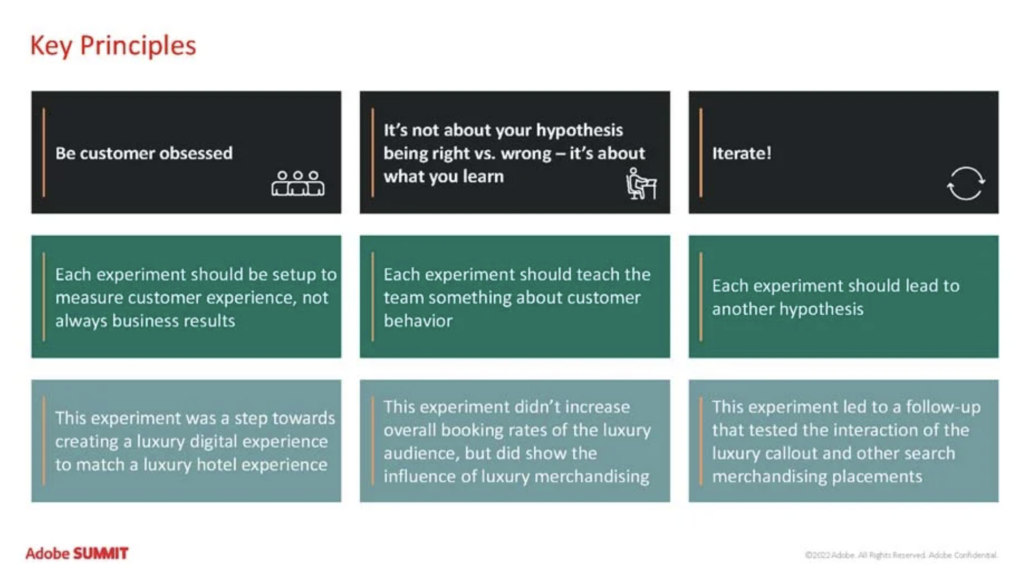Marriott: Data-driven Customer Experience for Decades at Scale

Marriott uses Big Data technologies across its hotel chain operations. Both unstructured and semi-structured datasets are used to forecast demand and determine a value for each individual room throughout the year.
Marriott International
Marriott International, Inc. is a diversified hospitality company, more than a hotel franchise. The company is engaged in operating, managing, franchising, and licensing a broad portfolio of hotel, residential, lodging, and timeshare properties under 30 different brands including the Sheraton, Le Meridien, Westin, Aloft Hotels, Fairfield, Four Points, and other brands (Figure#1).
Marriot International also has an in-house department called Marriot Digital Services (MDS), which uses data-driven technologies to streamline its system, optimize its strategy, and find new directions to grow.

Value of Data from the 80s
In the late 70s, Marriott was running out of sites where more traditional hotels could be built, while competitors like Holiday Inn were occupying their market share. Marriott needed to open a new market for growth, and seize back existing market share, while not cannibalizing their existing clients – they needed a new brand and product. Even before the term was coined, Marriot used data science to arrive at their solution for Courtyard, by Marriott. Marriott used conjoint analysis conducted on customer surveys to predict the market share that the product could deliver and then demonstrate the accuracy of these predictions through pilot tests (Figure#2).

It is quite impressive how their solution was in how the team designing their customer survey maintained a clear view of how given outputs mapped back to the management questions for the new product. This study changed management’s mind and instead of building smaller versions of Marriott hotels, they created hotels with an entirely new and different concept, ‘nice but affordable’ – Courtyard by Marriott. This study guided to an investment of $200 million per year in revenue from the pilot test, with a billion dollars in revenue per year.
Revenue Optimizing System (ROS) 2014
With such early year experience, the hotel chain recognizes the value of innovation and understands how to use data to guide decisions. Its Data Strategy and Governance team implements innovative solutions to provide decision-makers with timely access to high-quality, integrated data.
In 2014, Starwood hotels heavily implemented dynamic pricing automation, when was not long before merging with Marriott International in 2016. The hotel chain invested more than $50 million in its Revenue Optimizing System (ROS), which can integrate data from both internal and external sources and suggest optimal prices based on the results of its real-time analysis and demand forecast. For example, if during the Christmas season North American consumers are more willing to spend a week of vacation in New York, the ROS will automatically adjust rates. With dynamic pricing automation, Marriott is able to maximize its profit and ensure adequate staffing.
“The hotel chain Marriott has been using Big Data Analytics to start predicting the optimal prices of its hotels” (Forbes).
Marriott and IBM’s Cloud Technology 2015 and AI for Customer Experience 2020
Around 2015, Marriott adopted IBM’s cloud technology to offer faster digital services to clients and to discern insights from the company’s international properties. Using the infrastructure of IBM’s public cloud computing platform, Marriott migrated a significant part of its core IT system and applications to IBM. IBM’s analytics software was utilized and called Big Insights inside the Marriott. The main goal of using IBM’s cloud was to gain rapid analytics of early-stage data patterns and to scale new services on a global scale.
After Marriott’s path toward a cloud-based, consumption-modeled business line with IBM, it continued the relationship with IBM to support the Marriot Bonvoy platform – the largest loyalty program in the industry with more than 140 million members accessing various brand portfolios, points toward free hotel stay, travel experiences and other benefits. This Bonvoy platform, using data and AI, enabled Marriott with faster-targeted marketing, competitor monitoring, and tailored customer services. Just as we saw from the Booking.com case study, along with the customer feedback from Bonvoy Marriott formed a very straightforward methodology for A/B Testing cycle (Figure#3 and Figure #4).


Challenges and Opportunities
While using data analytics and AI for the business, understanding that not all data has the same value and is actually actionable is critical. Data can be reactive, predictive, or proactive – meaning it can give insights about past activities, help quantitatively predict outcomes or qualitatively prescribe what steps should be taken in the future. What should look at depends on the goals.
Marriott also has suffered hacking attacks since 2014. Hackers breached the hotel chain in 2014 to access almost 340 million guest records worldwide, then in 2020, Marriott was hacked again in a separate incident that affected around 5.2 million guests. Recently, Marriott has confirmed another data breach with 20 GB of sensitive data, including guests’ credit card information.
Sources
Armerding, T. (2018), “The 18 biggest data breaches of the 21st century”, available at: www.csoonline. com/article/2130877/the-biggest-data-breaches-of-the-21st-century.html (accessed 26 September 2022).
https://marriott.gcs-web.com/static-files/c5e1faef-f1e5-40e3-bd70-5efbbb929a7f
Paul Green et al (1989), “Courtyard by Marriott: Designing a Hotel Facility with Consumer-Based Marketing Models”
https://hoteltechreport.com/news/yield-management
https://www.infosecurity-magazine.com/news/marriott-plays-down-20gb-data/
Hotel And Other Travel Accommodation Global Market Competitor Briefing 2021
Virtual and Augmented Reality: Technologies and Global Markets, August 2018



Very interesting blog – I really enjoyed reading how Marriott has evolved through its technology journey since the 70’s to now. I’m a Marriott loyalist but I haven’t appreciated the data analytics behind my Bonvoy membership with the hotel chain. I wonder what their next set of priorities are in the next phase of tech evolution. I am concerned about the volume of hacks occurring at Marriott and how this affect customer loyalty. The way this article reads, it appears as though Marriott has been investing to achieve short-term gains in its data analytics efforts but hasn’t been investing in the security of that – exposing customers to the negatives while the firm reaps the benefits of customer data mining.
Thank you so much for this blog post! It is really interesting to read about data in the hotel industry.
What was a focus for me in this post is how data should be used to measure customer experience, not only revenues. I wonder if this focus will result in a competitive advantage for Marriott, as smaller hotel chains may not have the same ability to collect and measure data.
It is interesting to see how they developed and changed strategy since the 70s. Especially the Dynamic Pricing Model seems to allow to maximize profit and distribute staff optimally. I wonder if there is also a downside, for example that new customer groups are more likely to be addressed because old customer groups are not willing to pay a different price for the same service.
One aspect that I find somewhat lacking at Marriott is transparency of data usage towards the customers. Why is the price being changed? How will my data be used? Especially the hacker attacks and data leaks intensify the urge for transparency and data security.
Thanks for sharing this, Jiwon–very interesting! I saw a lot of parallels between Marriott and The Weather Company (which I wrote about). In particular, The Weather Company was bought by IBM, and as you noted, around the same time Marriott moved its services to IBM’s cloud. It seems like both companies benefitted in similar ways from consolidating their systems and moving them to the cloud–namely, it offloaded the need for both companies to manage their own IT infrastructure and it enabled rapid scaling as businesses needs changed. It was interesting to learn about the security incidents that you mentioned, however, as I noticed in my research that one of IBM’s main pitches to businesses about moving to their cloud architecture centered on better data security and monitoring.
Thanks for the great post!
I am an enthusiastic Bonvoy member myself, and the glimpse into the past you gave was super exciting!
I believe it a great of Marriott that this innovation has not stopped but that they are continuously looking for new M&A targets, and can therefore offer a diverse hotel palette, from standardized hotels that have the same cups and carpets all over the world (can be positive, because you know what you get), now also numerous boutique hotels like the Design Hotels or Autograph Collection have been added to their portfolio to meet this customer demand! Definitely the story of a global champion!
Thanks a lot for this blog post Jiwon!
I’m a Marriott loyalist and so loved reading about this article. Marriott, in my opinion, is a success story against disruption – in this case by AirBnb. One of the other things that I love about how Marriott how the Bonvoy app is equipped with experiences that customers can chose and use their points against thereby learning a lot more about the customer, their likes and dislikes and cater solutions to members in their own city even if they are not staying with a Marriott property – in a way of ‘owning the customer’ beyond the days where they are at the properties
Interesting read Jiwon! I’m a Bonvoy member myself and a loyalist, learning about their past and its evolution was really exciting. As I read, I felt they’re a success in the face of the disruption such as Airbnb and how they’re equipped to provide the customer preferences by knowing their customers better and leveraging it to provide great experiences and I think Marriot does a great job. But I’m curious to know what the future for Marriott will be especially with these hacking incidents and I’m more concerned about the data privacy issues around it, and will that discourage Marriott loyalist to share their data with Marriot or may it lead to a greater churn.